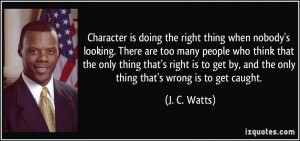The latest “viral” photo of a politician being portrayed as “simple” and doing something “out of the usual” is of widow and congresswoman Leni Robredo of Camarines Sur. The photo supposedly shows her waiting for public transport along a major highway, instead of having a special ride. Some might be reminded of another “simple” politician, Jose Mojica of Uruguay, also the subject of “viral” articles and photos for his simple lifestyle. Another recent photo showed the Irish president lining up at an ATM instead of cutting in front.
While these politicians might be doing well, the celebration of their being “good” and “simple” may actually be the indicator that something is wrong. Now what is wrong exactly? Think of this this way: are you supposed to receive pictures, shares and accolades when you don’t jaywalk and when you throw your trash in the bin instead of litter?
| SUPPORT INDEPENDENT SOCIAL COMMENTARY! Subscribe to our Substack community GRP Insider to receive by email our in-depth free weekly newsletter. Subscribe to our Substack newsletter, GRP Insider! Learn more |
This is also the reaction of Filipinos to things like when a taxi driver or janitor returns money left behind or other lost things. That kind of thing goes into the papers often. Many people would argue that such things should be celebrated, to really honor “good acts.” But the question is, why should it be so hard to return something or be simple? Shouldn’t good acts be expected of everyone every time and not just for special occasions?
Some people would retort, “why don’t you praise them for doing good! You should praise them for doing good, because if you don’t, they’ll do bad!” And that’s the problem. It would mean people would do good only for praise and reward – and that would not be doing good. That is only fishing for compliments in order to serve one’s ego. It can even be opportunism. Because of lack of respect for the public space, as Jorge Mojarro wrote, some Filipinos believe it’s their right to dupe others around them. They believe they should do wrong to others unless there is a reward. Thus, we have rampant crime, rape, abuse of privileges and resources, and simple rudeness and douchebaggery from Filipinos.
For the politicians’ ops, perhaps the practice stemmed from President Ramon Magsaysay’s image as a “man of the masa.” When you see politicians doing things like joining the poor in farming or helping build houses, they likely took a a page from Magsaysay’s book. Even President B.S. Aquino tried to build a “simple” image early in his term by banning “wang-wangs,” the sirens on government vehicles, among other things. He even defended his smoking habit, which he probably likens to ordinary people’s habits. Mar Roxas himself tried so many things like carry onion sacks, direct traffic and lately, ride a motorcycle in a storm-hit zone (although that didn’t turn out too well). Mar and Grace Poe-Llamanzares were also shown riding the MRT during the recent brouhaha over it. The problem with the presentation of these photos and actions is that the politicians were, as fellow blogger Ben Kritz had it, “appearing to try too hard.” They are just trying to look like leaders rather than actually become leaders. If they are really good leaders, then photo-ops only serve to diminish their achievement.
But the popularity of this method of image-building tells something about the Philippines; there’s a wide gulf between the leadership and the led. The led are looking for people who are ordinary, like themselves. President Aquino tried to come off as this, but he fails. He and his ilk are just too firmly entrenched in their lofty class statuses to actually understand those they are trying to “lead.”
This leads to another idea about these “simple people” photos: that Filipinos still believe in the “divine right of kings.” What do I mean? That privileged people, like politicians and rich business people, are seen as a class above the rest. They are thought to deserve the privilege of having limousines, servants around them and the “right” to cut in line or something like that. So when one of these privileged people do something like “go down to the level of the poor,” they are praised, because it’s seen as a one in a million thing.
Let me draw from this principle: if there are more anti-corruption laws passed, it means that country is more corrupt. Likewise, it’s an indication a country is experiencing a moral crisis when someone doing a simple good deed (like returning lost things) is praised as doing something incredible. It means that Filipinos are failing to expect the right things from their leaders, and their moral compass is messed up. This needs to change. Filipinos need to have higher standard of leadership and behavior, both from leaders and themselves. “Being ordinary,” following rules, helping people when they are in need and more, are not special actions. They need to be expected of our leaders every time, without accolade or reward. Because that is what they became leaders for!
Once we have politicians and citizens doing good even when no one is looking, only then can we be “proud to be Filipino.”
- Killing “Fascists” will never save the world - January 20, 2026
- To Get Rid of Corruption, we need to Drastically Alter Filipino Culture to the point of being “UnFilipino” - November 24, 2025
- Why Transhumanism is Humanity’s Enemy, not its Future - May 4, 2025


filipinos really still have this penchant of idolizing people who does something that is normally expected of citizens. at least it would have been believable if the photo was of her actually boarding the bus. one good thing though about the picture is that it revealed how hot she really still is:)
ew
An emerald will shine none the less though its worth be not spoken of. – Marcus Aurelius
Unless they–the politicians–do it regularly, then that’s just plain photo ops. It may seem that M. Leni is doing it regularly. But with Mar, ha! Pasikat!
Indicators of what kind of society the politicians has made the Philippines….. humility and honesty in public service has become a rare virtue…servant leaders become an exceptions rather than the expectation…. The enslaved electorate are numbers to keep the corrupt in power.
I think Filipinos are beyond the stage where we can change ourselves for the better. Our only hope is good leaders who will enforce laws to forcibly make us behave.
I had always requested your site to do something for our fellowmen instead of just criticizing them but you haven’t done anything. Now I found this site RAPPLER who are doing so much in terms of helping through their volunteer efforts especially during typhoon Ruby. Why can’t you do such a thing? We already know what ails us, thanks to your years of spewing them mercilessly NOW do something to be of help.
Do what? We have GRP bloggers doing something, check this out. And if you want solutions, check this one.
May napuna lang ako sa pic na yun. Parang walang Bus Stop sa lugar na pinaghhintayan ng Magiting na Kongreswoman tsaka walang ibang pasaherong naghihintay. Tsaka galing Rappler yata yung pic a known Yellow Media propagandist. Walang Kridibilidad yang si Raisa Robles.
When Politicians do their “Publicity Stunts” to identify with the rest of us, ordinary people. They are suspected always of doing it, to ask for our votes. It is because most of the Politicians, we know act in different manners. They ride in fancy cars. They wear fancy clothes. They surround themselves with armed bodyguards. And all must give way for them, when they need to pass us…
Politicians/Leaders are privilage classes in our culture ; and in our society. You cannot remove that Filipino mindset…it has been ingrained in our Subconcious, since the the colonial Spanish times…
When I tell Filipinos I’m from England, many will ask if I have ‘blue blood’ and seem genuinely in awe of the concept of royalty. Maybe they’re just being polite, ignorant, just don’t have any other reference points about the country or they’ve watched too much Disney, but you’d think they would have had enough evidence by now from their country’s own ‘prestigious’ families that there’s nothing special about lineage.
may we seek permission to print this in our next issue of the bicol mail, a regional weekly in bicol?
thanks for your reply.
No problem. Thanks!
My thanks as well.
They’re all in a wee bit of a snit, aren’t they?
Goddamn pencil-pushing dumbass Failippine politicians.
Aye, what else is new?
I agree, we should expect good deeds from everyone. But I don’t see any wisdom in questioning a good deed made public for everyone to see.
We expect good deeds from everyone but we abhor any publicity of it? Are we not suppose to give examples to the young through concrete and real life incidents of heroism and good deeds? How can we do that if we’ll not provide actual incidents of good deeds?
I also don’t subscribe to the idea that if you do not praise someone, that someone is bound to do bad things. I don’t know where that idea came from but it’s not right.
With regard to politicians, I think image-building is part of their business. I don’t see anything wrong with politicians making themselves appear normal or regular people. When you are in the business of selling your self, there is nothing that stands in the way of you embellishing your self to be acceptable to the public.